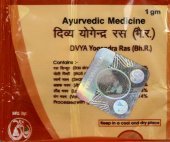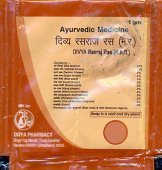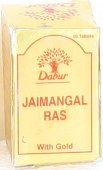Vang, Vaṅg: 7 definitions
Introduction:
Vang means something in Hinduism, Sanskrit, Hindi, biology. If you want to know the exact meaning, history, etymology or English translation of this term then check out the descriptions on this page. Add your comment or reference to a book if you want to contribute to this summary article.
Biology (plants and animals)
Source: Wisdom Library: Local Names of Plants and DrugsVang in the Mizo language is the name of a plant identified with Albizia chinensis (Osbeck) Merr. from the Mimosaceae (Touch-me-not) family having the following synonyms: Acacia stipulacea, Mimosa chinensis, Albizia stipulata. For the possible medicinal usage of vang, you can check this page for potential sources and references, although be aware that any some or none of the side-effects may not be mentioned here, wether they be harmful or beneficial to health.
Source: Google Books: CRC World Dictionary (Regional names)1) Vang in India is the name of a plant defined with Albizia chinensis in various botanical sources. This page contains potential references in Ayurveda, modern medicine, and other folk traditions or local practices It has the synonym Inga purpurascens Hassk. (among others).
2) Vang in Vietnam is also identified with Caesalpinia sappan It has the synonym Biancaea sappan Tod. (etc.).
Example references for further research on medicinal uses or toxicity (see latin names for full list):
· Cytologia (2000)
· Philippine Journal of Science (1910)
· Bulletin de la Société Botanique de France (1865)
· Recent Res. Pl. Sci.. (1979)
· A Numerical List of Dried Specimens (5243)
· Encycl. (1838)
If you are looking for specific details regarding Vang, for example health benefits, extract dosage, diet and recipes, side effects, chemical composition, pregnancy safety, have a look at these references.

This sections includes definitions from the five kingdoms of living things: Animals, Plants, Fungi, Protists and Monera. It will include both the official binomial nomenclature (scientific names usually in Latin) as well as regional spellings and variants.
Languages of India and abroad
Sanskrit dictionary
Source: DDSA: The practical Sanskrit-English dictionaryVaṅg (वङ्ग्).—1 P. (vaṅgati)
1) To go.
2) To limp, be lame.
Source: Cologne Digital Sanskrit Dictionaries: Benfey Sanskrit-English DictionaryVaṅg (वङ्ग्).—i. 1, [Parasmaipada.] 1. To go. 2. To limp.
— Cf. vaṅk.
Source: Cologne Digital Sanskrit Dictionaries: Monier-Williams Sanskrit-English DictionaryVaṅg (वङ्ग्):—[class] 1. [Parasmaipada] vaṅgati, to go, [Dhātupāṭha v, 39];
—to go lamely, limp, [Vopadeva]
[Sanskrit to German]
Sanskrit, also spelled संस्कृतम् (saṃskṛtam), is an ancient language of India commonly seen as the grandmother of the Indo-European language family (even English!). Closely allied with Prakrit and Pali, Sanskrit is more exhaustive in both grammar and terms and has the most extensive collection of literature in the world, greatly surpassing its sister-languages Greek and Latin.
Hindi dictionary
Source: DDSA: A practical Hindi-English dictionaryVang in Hindi refers in English to:—(nm) the eastern Indian state of Bengal; tin or tin-ash; ~[ja] vermilion; brass; born in Bengal; a Bengali; ~[bhamga] the partition of Bengal in pre-Independence India which sparked off an unprecedented stir; —[desha] the state of Bengal; -[samskriti] the Bengali culture; [vamgiya] of, pertaining or belonging to, Bengal..—vang (वंग) is alternatively transliterated as Vaṃga.
...
See also (Relevant definitions)
Starts with (+114): Vamgada, Vamgadadege, Vamgadisu, Vamgibatu, Vamgibhatu, Vang dang, Vang las lowsn, Vang nghe, Vang nhuom, Vang nhuoojm, Vang vat tur, Vang xanh, Vanga, Vanga Vanga, Vangabhasma, Vangadasa, Vangadattavaidyaka, Vangadhara, Vangadvel, Vangaj.
Ends with (+2): Cay vang, Chiec vang, Co vang, Day mo vang, Lagavang, Lavang, Lim vang, May vang, Ngai hoa vang, Pan-lavang, Phalvang, Purvang, Ran-lavang, Ro mo vang, Sa nhaan nam vang, Sarvang, Shvang, Trac vang, Tuah-favang, Tvang.
Full-text (+9): Vau-fa-vang, Vang nhuom, Sa nhaan nam vang, Vang dang, Vang nhuoojm, Lim vang, Ro mo vang, Trac vang, Ngai hoa vang, Vang vat tur, May vang, Cay vang, Vang xanh, Day mo vang, Co vang, Vang las lowsn, Chiec vang, Vang nghe, Vanga, Tarunal.
Relevant text
Search found 4 books and stories containing Vang, Vaṅg; (plurals include: Vangs, Vaṅgs). You can also click to the full overview containing English textual excerpts. Below are direct links for the most relevant articles:
Guhyagarbha Tantra (with Commentary) (by Gyurme Dorje)
Text 8.15 (Commentary) < [Chapter 8 (text and commentary)]
Text 6.14-17 (Commentary) < [Chapter 6 (text and commentary)]
10b. The Zur Lineage in Central Tibet < [Introduction]
The Garuda Purana (by Manmatha Nath Dutt)
Chapter CXXXII - The Sadgati Vratam etc < [Brihaspati (Nitisara) Samhita]
Heimskringla (by Snorri Sturlson)
Part 129 - King Olaf Baptizes In Vors And Valders < [Chapter VII - Saga Of Olaf Haraldson]
The Bhagavata Purana (by G. V. Tagare)
Chapter 50(a) - Jarāsandha’s Second Expedition < [Book 10 - Tenth Skandha]
Related products
(+5 more products available)





